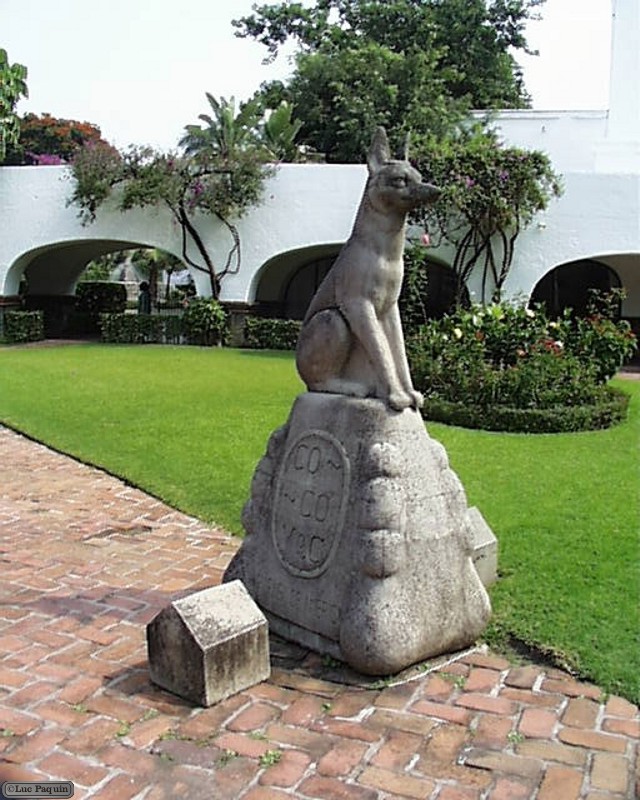Year: 1998 (November 13, 1998)
8.5″ x 11″
Media: Canon® Pro Platinum High Gloss Photo Paper
Printers: Canon® PIXMA
Color
Art: Photo
Artist: Luc Paquin
Hotel Hacienda Cocoyoc
Coyote
The coyote (Canis latrans) is a canid native to North America. It is a smaller, more basal animal than its close relative, the gray wolf, being roughly the North American equivalent to the old world golden jackal, though it is larger and more predatory in nature. It on account of its wide distribution and abundance throughout North America, even southwards through Mexico and Central America. It is a highly versatile species, whose range has expanded amidst human environmental modification. This expansion is ongoing, and it may one day reach South America, as shown by the animal’s presence beyond the Panama Canal in 2013.
The ancestors of the coyote diverged from those of the gray wolf, 1-2 million years ago, with the modern species arising in North America during the Middle Pleistocene. It is highly flexible in social organization, living either in nuclear families or in loosely-knit packs of unrelated individuals. It has a varied diet consisting primarily of animal matter, including ungulates, lagomorphs, rodents, birds, reptiles, amphibians, fish and invertebrates, though it may also eat fruit and vegetable matter on occasion. It is a very vocal animal, whose most iconic sound consists of a howl emitted by solitary individuals. Humans aside, cougars and gray wolves are the coyote’s only serious enemies.
The coyote is a prominent character in Native American folklore, usually depicted as a trickster who alternately assumes the form of an actual coyote or a man. As with other trickster figures, the coyote acts as a picaresque hero which rebels against social convention through deception and humor. The animal was especially respected in Mesoamerican cosmology as a symbol of military might, with some scholars having traced the origin of the Aztec god Quetzalcoatl to a pre-Aztec coyote deity. After the European colonization of the Americas, it was reviled in Anglo-American culture as a cowardly and untrustworthy animal. Unlike the gray wolf, which has undergone a radical improvement of its public image, cultural attitudes towards the coyote remain largely negative.
Luc

Leave a Reply